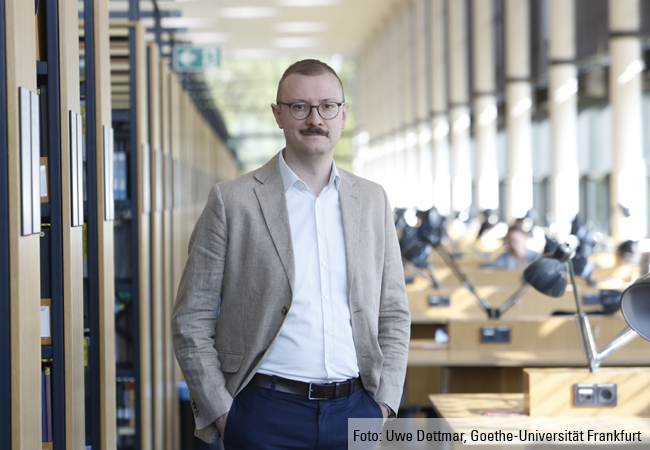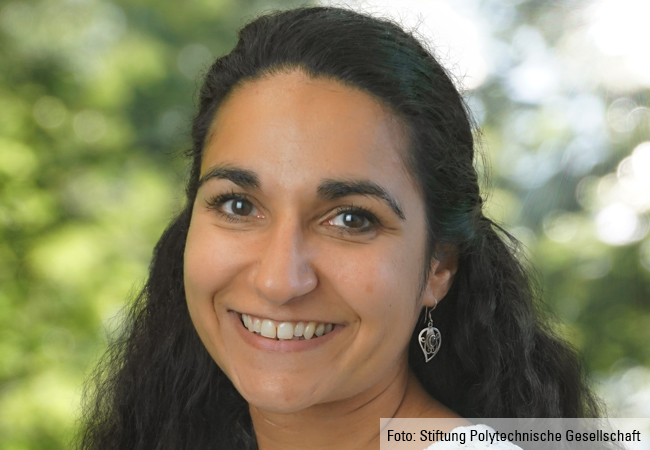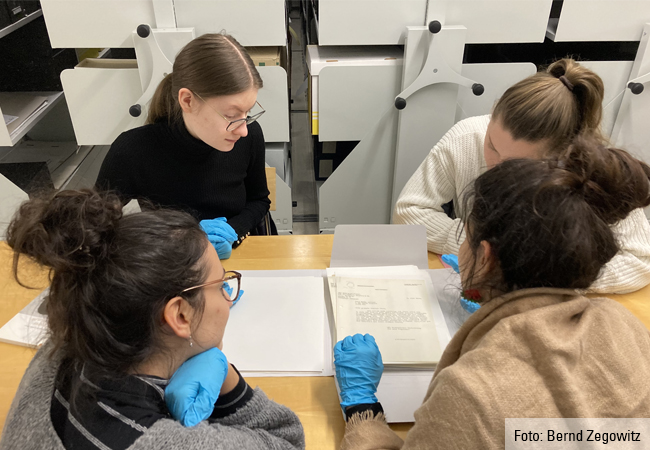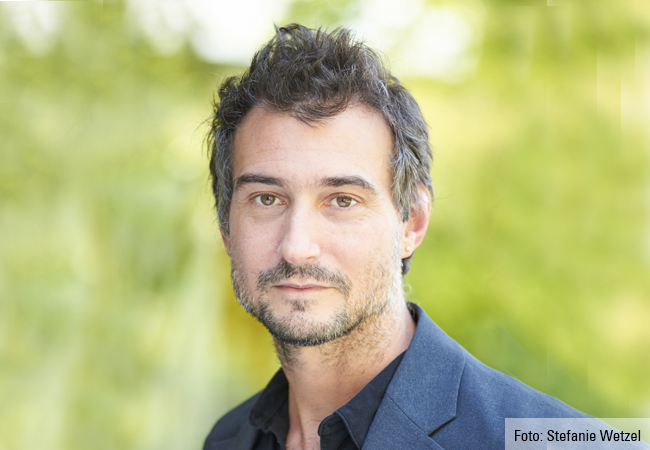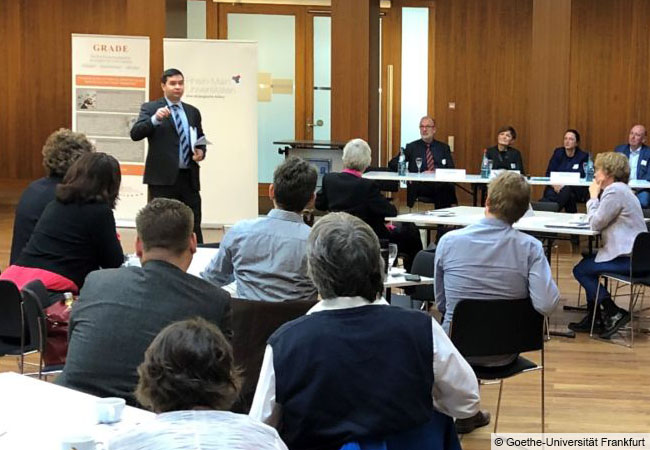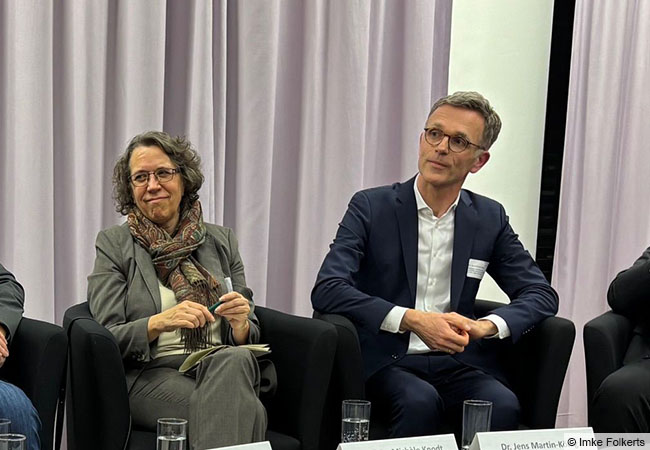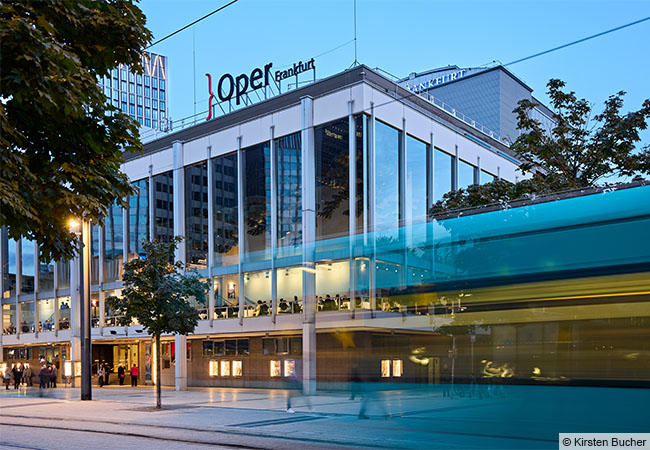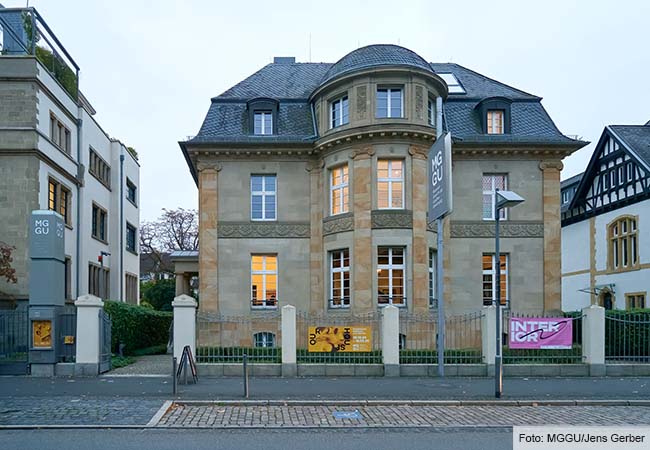Renowned lawyer and publicist Constanze Stelzenmüller spoke at the Forschungskolleg Humanwissenschaften – Institute for Advanced Studies about the portentous 2024 US presidential election and the fatal enthusiasm of many people, both in the US and abroad, for Trump.
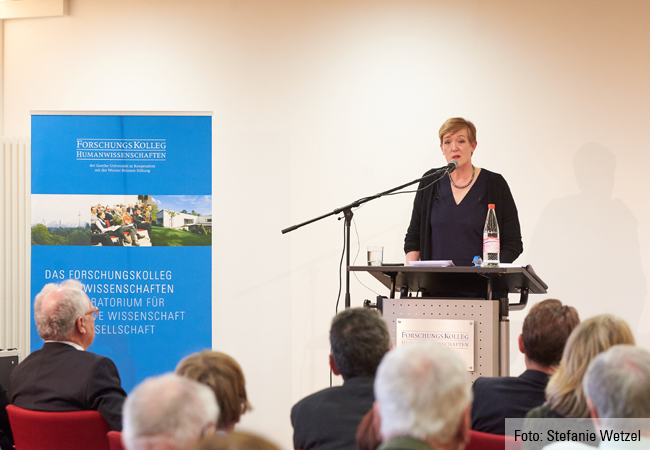
“A flirt with dictatorship? The US presidential election in the crisis year 2024” was the title of the third John McCloy Lecture, delivered by Constanze Stelzenmüller at Goethe University Frankfurt’s Forschungskolleg Humanwissenschaften – Institute for Advanced Studies. She started by examining Germany’s relationship with the US and stating, albeit with some reservations, that “without the Americans’ protection and generous friendship our history could have been quite different.” Her review included a large number of autobiographical episodes and details in which the cities of Frankfurt and Bad Homburg also played a role.
She then turned her attention to the “overall geopolitical situation”, characterized by Russia’s war on Ukraine, the Middle East conflict and rising tensions in Southeast Asia. In view of the solidarity between many authoritarian states, the West has in fact become accustomed to the loss of political and moral hegemony, she said. But what the free world has not yet really grasped, Stelzenmüller stressed, is the fact that there are authoritarian rivals who consider the states of the free world as their enemies – indeed as absolute enemies as defined by Carl Schmitt in “The Concept of the Political”.
Stelzenmüller declined to speculate on the outcome of the US presidential election, saying almost anything is possible, but adding that it could decide the future of American democracy and America’s role in the world, because two totally different “worlds of perception” are now juxtaposed.
Speaking about Biden’s track record as president, Stelzenmüller described it as impressive on many counts, pointing to the economy and the infrastructure program. His government has been working more closely with the European Union than virtually any of its predecessors, as exemplified by the sanctions and export controls to support Ukraine, she said. Yet, it could be precisely therein that lies the problem of the Biden administration, is Stelzenmüller’s interesting analysis: While the administration’s style of governance is reasoned and worldly, at the same time it has no answers for the “archaic aspects of politics”. By contrast, she continued, Trump’s “infernal attraction” is based precisely on the fact that he stands for unregulated aggression, in a sense allowing his supporters to release the safety catch on their own feelings without any inhibitions. Stelzenmüller does not believe the greatest dangers lie in the foreign policy of a new Trump administration; instead, they lie in the MAGA (Make America great again) Right and a re-construction of the liberal-representative US constitutional order.
The potential end of American democracy is indeed a shocking idea, although Stelzenmüller does not wish to rule out the possibility that this very prospect could lead to a “democratic renaissance”, persuading the Europeans and the Germans to finally take responsibility for their own security. In the last part of her lecture, the incumbent of the Fritz Stern Chair spoke about Europe and Germany. While Europe has increasingly learned to stand on its own two feet during the last two years and many people, even in America, are now familiar with the “historic turning point” proclaimed by Chancellor Scholz, Stelzenmüller said this turning point remains incomplete. For too long, Germany has clung to a “strategy of a hyperglobalized national economy”, she continued, adding that military security measures had been outsourced to the US, while energy security was outsourced to Russia, and the motor driving exports and growth to China. Behind all this stood the optimistic assumption that in the wake of this peaceful economic order the old system rivalries would eventually disappear, despite some early warning signs that maybe a global peaceful order had merely been an illusion. Stelzenmüller finished her lecture by predicting that Germany will have to learn to find a new anchor for its security, democracy and freedom in unstable, disorderly conditions. That will not come without a cost, and it will require a lot of effort and sacrifice, she said. But maybe, she closed in citing Fritz Stern’s assessment of the year 1989, this will also constitute a “second chance” for Germany.
df
Researcher and publicist Constanze Stelzenmüller earned her doctorate in law and has been working at the US think tank Brookings Institution in Washington D.C. since 2014. In 2020 she became director of the Center on the United States and Europe and holder of the Fritz Stern Chair on Germany and Trans-Atlantic Relations. She regularly comments in both German and international journals on current developments in German, European and transatlantic foreign and security policy and is a frequent guest expert on news bulletins and political talk shows. Her John McCloy Lecture is available on the Forschungskolleg Humanwissenschaften’s YouTube channel @FKHbadhomburg.
The John McCloy Transatlantic Forum, named for US High Commissioner John McCloy, was founded at Goethe University Frankfurt’s Forschungskolleg Humanwissenschaften – Institute for Advanced Studies in 2022. It fosters the interaction between academia and the public and is directed at anyone with an interest in transatlantic relations under a shared understanding of democracy.
www.forschungskolleg-humanwissenschaften.de


